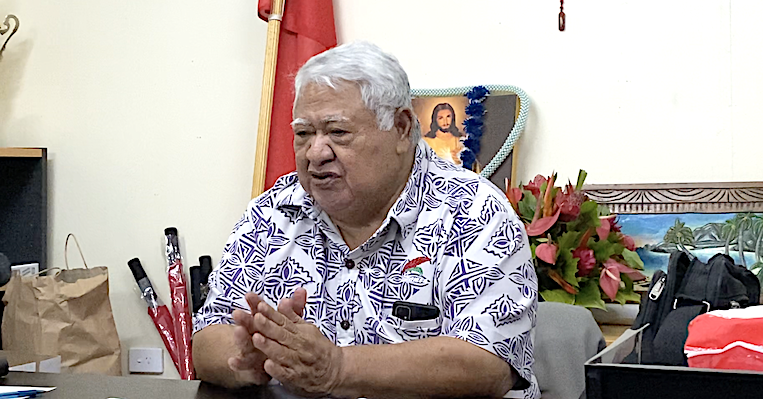

This week, I had the honour to lead a Human Rights Protection Party delegation to make a submission to the New Zealand Parliamentary Governance and Administration Committee hearings on the bill put forward by Green Party Member of Parliament Teanau Tuiono on Restoring Citizenship Removed by Citizenship (Western Samoa) Act 1982.
We were warmly received by the distinguished members of the Committee, who welcomed our contribution.
We spoke on behalf of a generation of Samoans who were the victims of a law that was rooted in racism.
Other fellow Samoans spoke passionately of the suffering and hardships that the children of that generation had to endure.
This suffering was unnecessary but reflected the bigotry and ignorance of that period in New Zealand’s history.
For Samoans, it was ironic that in the 1980s New Zealand was leading the fight against apartheid in South Africa, including protests against the 1981 Springbok rugby tour that created international support for the anti-apartheid movement.
Yet, at the same time they were passing racist laws and setting dogs on Pacific Islanders during the infamous dawn raids.
As we gave testimony, I reflected on the fact that more recently, Samoa has stood beside New Zealand on global initiatives on the rule of law including the establishment of the International Criminal Court, protecting the rights of the child, the rights of disabled persons, discrimination against women, and the law of the sea, amongst many others.
Samoa has also been an equal partner in pursuing the sustainable development goals, addressing climate change, and setting the agenda for the development of Small Island Developing States.
Domestically, Samoans have made an impact in almost every sector of New Zealand’s development from politics, diplomacy, sports, health, military, education, agriculture and culture.
If Samoa and New Zealand can stand together as equals on the global stage to confront today’s challenges, then surely, we can respect each other as friends and equal partners right here in the Pacific.
Until there is mutual respect, the racial bias and hate of the 1980s will continue to fester in various forms.
Unrealistic quota systems and random delays and denials of visas are vestiges of that era that persists today.
HRPP therefore applauds the courage of the current New Zealand legislature to consider this bill and calls on them to correct an injustice that is a terrible scar on the special relationship between our countries and people.
And unlike the other historic wrongs of the past, there are still some from that generation who are still alive to help heal those wounds.
We pray that the principles of the rule of law will prevail and that good shall triumph over distrust and ignorance.
Tuilaepa Sailele Malielegaoi
Leader of HRPP
